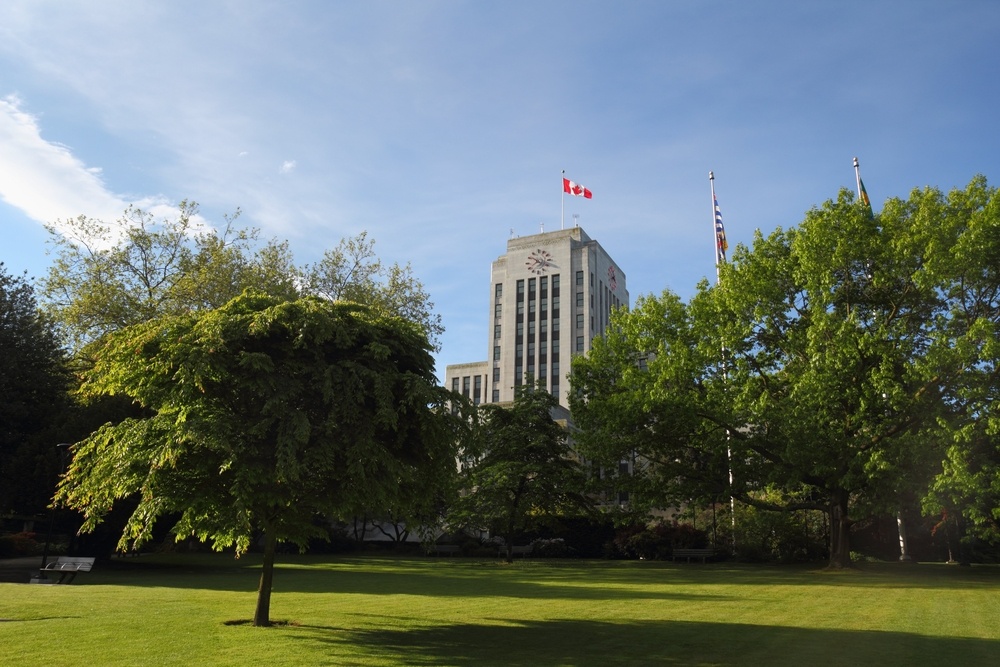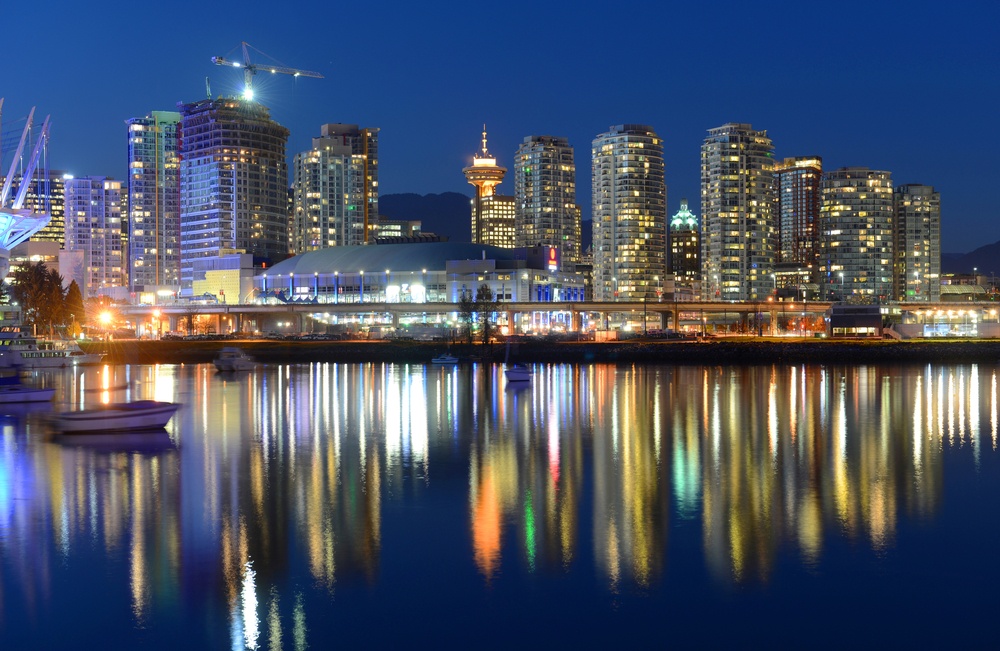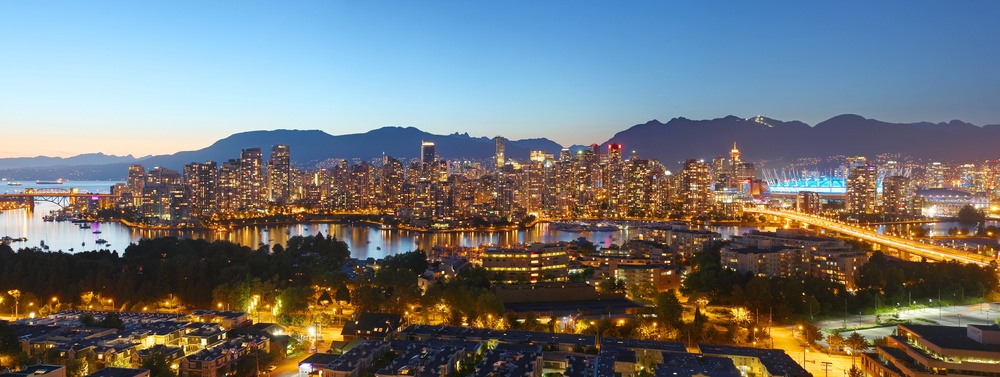
The City of Vancouver has been without a chief planner since 2015.
Although the assistant directors of planning at City Hall, and really the entire planning department staff, have done an excellent job since then, and are skilled, passionate, and talented – and let’s be clear, they are all those things and more – we are badly in need of a new chief planner. Vancouver needs a champion for smart, livable, sustainable, principles-based city-making. That’s what the new chief planner must be.
When I accepted the role of Vancouver chief planner in 2006, I was aware of the huge challenge I was taking on, and appropriately felt the weight of the city planning history and traditions that my exceptional predecessors had built. I knew I would be standing on the shoulders of giants, in a city with huge (and often unreasonable) expectations. But I was excited and passionate about protecting and building on those successful traditions, while working hard to take our city planning to the next level. I was fortunate to have those same predecessors, Ray Spaxman, Larry Beasley, and Ann McAfee, in my corner as friends, mentors, and occasional advisors. And I was lucky to work with what I considered to be the best planning department in North America, and one of the best in the world.
When I left City Hall in 2012, under tough and unexpected circumstances, I was deeply worried about the future of city planning and urban design in our city. In many ways, those fears have proven justified. At times it’s been hard to watch, and despite not wanting to make things even harder for my former team, I haven’t always been willing or able to stay silent. I’m thankful though, that so many voices in the community, and so many in the planning department itself, fought hard to protect the integrity of city planning in our city, even at personal cost.
Now, in 2016, a week before our new chief planner is expected to be announced, I’m no longer worried. I’m optimistic, albeit perhaps cautiously, that we are about to turn a corner back to the kind of planning principles and values that made Vancouver planning successful and respected locally, and admired around the world.
The main reason for that optimism is that I know our new city manager, Sadhu Johnston, very well from my time at City Hall. I supported his selection, which was the right choice for rebuilding and healing the deeply damaged culture at City Hall. And even before his official selection, Sadhu as acting city manager made the smart move of reaching out to the recently ignored (and sometimes even vilified) generations of past planning leaders, myself included, for candid discussions about what was broken in our city planning, what it would take to fix it, and what kind of new chief planner we’d need to do it. Sadhu did something he’s good at – he listened. And he’s already put much of that advice into action, even in how the new chief planner position has been structured and advertised.
And I’m optimistic because I know that his choice for the new chief planner is an excellent one.
Having said that, our new chief planner will face big challenges, and will need to be positioned well for success by Council. He or she will need to be allowed to take the time needed to listen and learn, because there will be a huge learning curve with the job. We will all need to give the new chief planner the room and support to take intelligent risks, the mandate to innovate, and the independent, un-muzzled voice to once again be a vocal champion for great city-making!
I recently tweeted what I consider to be the five biggest high-level challenges that our new chief planner will need to tackle. Here they are again, with more complete explanations of what I meant. These are not intended to be all-encompassing, and don’t address all of the many critical content matters in planning and urban design that the chief planner will lead. But they address the big fixes that will be necessary to successfully rebuild the planning culture in our city.

Vancouver City Hall/Shutterstock
1. Reestablish the planning department’s long-held reputation for intellectual and political/non-partisan “independence”
For generations of planning leaders, including my generation, the Vancouver chief planner had been consistently non-partisan and intellectually independent. This didn’t mean that our chief planners were rebellious or undisciplined in our opinions, or disrespectful of our elected leaders – rather it meant that we understood and embraced our role in always providing our objective and professional advice, “speaking truth to power,” and always making sure decision-makers heard what they needed to hear, not necessarily what they wanted to hear.
This culture was based on the clear understanding that our first responsibility as city planners is always to the public interest, and our second responsibility is to all of Council, not just the majority party. In short, planning staff are not political operatives.
This culture has been a critical part of our planning success (among many other successes in our city), and a reason why city planners have had a high level of credibility and trust when sharing opinions or information, even if some of those opinions were hotly debated and controversial — indeed, especially when that was the case!
In recent years however, this is been replaced with a new model that is closer to that seen in provincial governments – a “yes minister” model that suggests that staff work for the ruling party, not the broad public or all of Council. This culture has been extremely damaging to City Hall, and particularly to the credibility and value of the planning function.
Rebuilding staff’s political independence will be a key challenge for our new city manager, and rebuilding the planning department’s credibility & independence will be a key challenge for our new chief planner.

Vancouver/Shutterstock
2. Reestablish the planning department’s (and City Hall leadership’s) strong urban design culture, and reputation for knowing how to do density well
In the past few years, it has been questioned by many whether Vancouver City Hall still values urban design. This despite the fact that our culture and skills around urban design over generations have been a bedrock of our smart city-making and a critical key to our success, especially as we grow and densify.
To be clear, no one should question the passion and skills around urban design found within the many levels of staff in our planning department, and indeed in many other departments across City Hall. But the understanding and appreciation for the value of urban design excellence was lost, or at best applied inconsistently, in the last few years at our highest levels of management at City Hall (including at the chief planner’s position), and among City Council.
Great urban design is not something to be politically traded off against other public aspirations like more affordable housing or environmental sustainability – indeed, smart city-making understands that great urban design is the bedrock for successfully implementing the many other goals we have, including affordability and sustainability.
We need to reestablish Vancouver as a “city by design” again, a city that understands that great design is one of the critical necessary elements & cornerstones to all of our public interest goals and aspirations. A strong culture around great design is particularly important for achieving what I call “density done well,” a critical challenge for our city as we grow.
Indeed, the change back to a design culture in upper management has already started, as I believe our new city manager understands the value and need for great urban design as a precondition for solving many of our challenges and issues.

Vancouver waterfront/Shutterstock
3. Rebuild the planning department’s (and City Hall’s) credibility for authentic and transparent public engagement
It’s true that successful public engagement isn’t easy, and every generation of Vancouver planning, including mine, has had its high and low moments. But generations of public engagement have been based on an understanding that real, authentic engagement leads to better plans and outcomes, and the public deserves to be heard, understood, and learned from during every planning process.
In recent years, the feeling of many is that planning processes feel pre-concluded, that City Hall has already made up its mind. Now I can tell you for a fact that the planners at City Hall have the right attitudes and appreciation for real public engagement that doesn’t pre-conclude. But some of staff’s bosses in recent years haven’t. This has resulted in some significant failures that have shaken the public’s confidence in the intentions of city planning.
I do believe though, that with the right new leadership in both the city manager’s and chief planner’s offices, this can be turned around. It’s going to take a reboot of the engagement culture, style, and approaches, and much more of what one of my favourite math teachers drummed into me at a young age — the need to not just give the answer, but to always “show our work!”

Rogers Arena/Shutterstock
4. Reestablish on-going lines of communication with Vancouver’s communities, and be a highly visible “champion” for a great planning
When I first arrived in Vancouver in 2006, I took every opportunity to go out and introduce myself to communities and stakeholders, and talk about what I believe in. I also took every opportunity to listen and learn. But I’ll be the first to admit that as I was swamped by the huge responsibilities of the position, those lines of communication I had hoped to maintain were very difficult to keep open. And my sense is that since I left, things have only gotten worse.
Our new chief planner will need to rebuild those lines of communication, and keep them open long after his or her initial introduction to Vancouver’s many communities. I know from hard experience that won’t be easy, but it’s necessary for success.
This will involve plenty of listening and learning – not necessarily always agreeing, but always being honest and transparent about the real opportunities, disagreements, challenges, and tough choices.
And in addition to that, from day one, I believe the new chief planner should be encouraged to take back the role of Vancouver’s “champion-in-chief” for great city-making. The attempts in recent years to keep the chief planner low profile, and to limit and micro-manage media access, have been wrong.
Our most successful chief planners have been outspoken, persuasive, passionate champions for planning, designing, and building a great city. We need that again. Our new chief planner should embrace the media, both mainstream and social, and should speak and write as much as they are able, as it offers a powerful opportunity to educate, facilitate and inspire a great conversation about our city.

Vancouver nighttime/Shutterstock
5. Rebuild the culture of excellence, innovation and creative risk-taking in city making, and rebuild staffs trust in upper management
In recent years, the culture at city hall has not rewarded new ideas, creative risk-taking, or innovation. By punishing perceived mistakes (even if they weren’t really mistakes) instead of seeing “competent failure” as a learning laboratory for innovation, or just by making any new idea have to “run the gauntlet” of risk-averse interrogation and battering, the message to staff was clear – don’t propose new ideas, or put your neck out there by taking a risk.
The huge shame of that, is that Vancouver’s City Hall used to be a figurative beacon to other cities on how to innovate, to risk, and to learn. It used to have the best municipal culture for departmental and inter-departmental innovation and creativity I’ve ever seen in at least North America.
As I now work around the world advising cities, many of which are considered to be among the most innovative and successful on the planet, my strong belief in the value of a culture of creativity and intelligent risk-taking has only grown. Vancouver City Hall, and particularly our planning department, needs to deliberately and passionately reestablish that culture, grow it, and protect it from future assaults.
I hope these five big fixes stir critically important conversation across our city, and give our new chief planner much to think about. I’m enthusiastic about the change that’s already started at City Hall with the new City Manager’s leadership, and I know that our City Council, all of them, are passionate and committed people who very much want our city to succeed.
Let’s be clear – there has never been a generation of Vancouver city planning where things were perfect. The generation that I was a part of, certainly wasn’t. One of our most important strengths is a willingness, at least in our best moments, to be constructively candid (which is very different than cynical) about our weaknesses, failures and struggles, to learn from them, and to never be fully satisfied with our successes.
I don’t suggest these five fixes because they are easy, or because they would solve everything. But I do know, especially with the benefit of the new experience I’ve gained since leaving City Hall, that they reflect time-tested values and approaches that have been critical to our past successes, and will be key to our successful future.
I wish our new chief planner good luck and much success, because I love Vancouver, and I want us to keep getting better in every way. But it will take more than wishing. It will take all of us helping and participating, and constructively contributing to the important processes and discussions that shape our city. It will take a new culture, a plan, and real action to fix what’s been broken. It will take positioning this new planning leader for success. And it will take all of us sending the message that we value smart and creative city planning, great urban design, and honest public engagement. Vancouver deserves nothing less.

